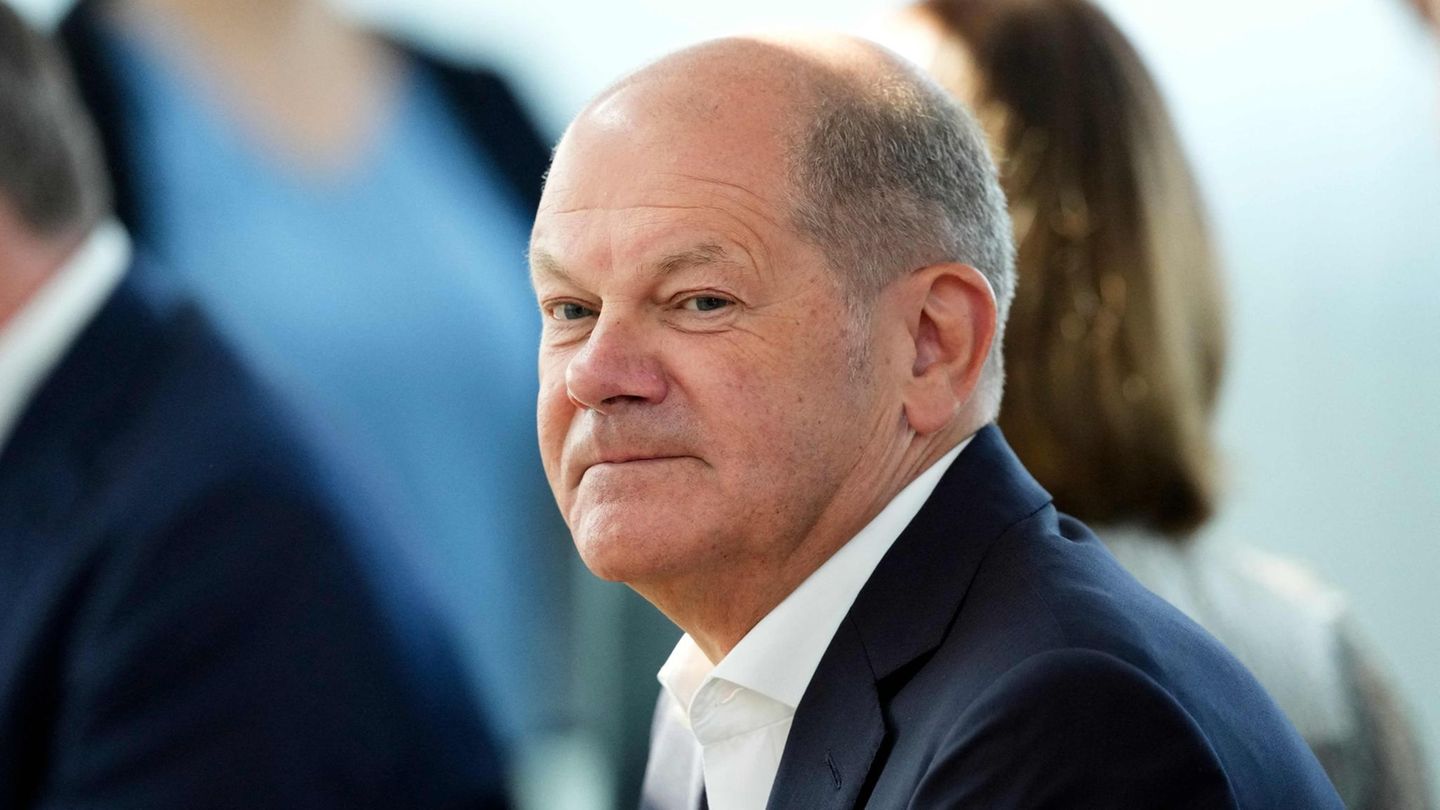Opinion
The European elections were another setback for Olaf Scholz and the SPD. Voters no longer trust the Chancellor. He must reinvent himself – and quickly.
When Kurt Georg Kiesinger was in power, the CDU put up election posters with the sentence: “It all depends on the Chancellor.” The SPD printed Olaf Scholz on posters in this European election campaign. However, these said nothing about the Chancellor’s irreplaceability. Perhaps Scholz’s election strategists had a premonition. Because the sentence is still true, it all depends on the Chancellor. But that is precisely the problem with Olaf Scholz and the SPD.
Of course, there is a lot to be analyzed now as to why the Social Democrats have plummeted to under 14 percent, less than half as much as the Union, and significantly behind the Alternative for Germany (AfD), which did not even dare to put forward its top candidate on election night. At least the Social Democrats were ahead of the others, albeit just barely. One could cite the eternal traffic light dispute as a reason, the knife attack in Mannheim, which reawakened justified fears of Islamism. And perhaps this whole damned Germany blues, which makes even a European Championship summer fairytale seem so improbable.
Olaf Scholz doesn’t need to read all these analyses, he just needs to look in the mirror. It will be a painful look: because the Germans no longer want him as chancellor. Perhaps they never really wanted him; Armin Laschet, with the active support of Markus Söder, lost the last federal election rather than Scholz won it. Scholz concluded from this that a refusal to have a vision and to communicate, and even almost lived boredom, are not weaknesses, but recipes for success. No excitement, didn’t that work for Angela Merkel too? But she ruled in happier, calmer times.
Another Olaf Scholz? The chances are slim
Merkel also managed the feat of making her popular, even though many people were upset about her policies. Merkel was considered a cult figure at some point, and clever anyway. Scholz is not denied his cleverness either, but he is denied almost every other positive quality, most notably self-criticism. Anyone who sticks to his closest team despite poor poll and economic data and keeps stressing that the country is doing well will eventually come across as stubborn rather than level-headed.
It is not so much Scholz’s policies that many Germans are unfamiliar with. Broad support. Secure pensions? An election campaign hit. No adventures in Ukraine? Scholz could unite a majority behind him for that too. No, it has to be put so brutally: people no longer trust this person in the Chancellery.
In short, Scholz must reinvent himself. Other politicians have found this difficult. In the USA, presidential candidate Michael Dukakis, a brittle intellectual, wanted to portray himself as a warlord in 1988. But he was so unhappy sitting in a tank that everyone thought: He can’t do it. Markus Söder has hung crosses and hugged trees, but somehow he has always remained Markus Söder. The idea that Olaf Scholz will really change seems about as likely as the idea that Uli Hoeneß will one day become a harmless, relaxed retiree. The Chancellor is so confident in himself and his course that any serious advice on his type would be like coercion. Now Scholz’s people are hoping that the Germans will want Friedrich Merz as Chancellor even less. The strategy could even work, as his popularity ratings are even lower than Scholz’s. But what should Germany hope for then?
Source: Stern
I have been working in the news industry for over 6 years, first as a reporter and now as an editor. I have covered politics extensively, and my work has appeared in major newspapers and online news outlets around the world. In addition to my writing, I also contribute regularly to 24 Hours World.




